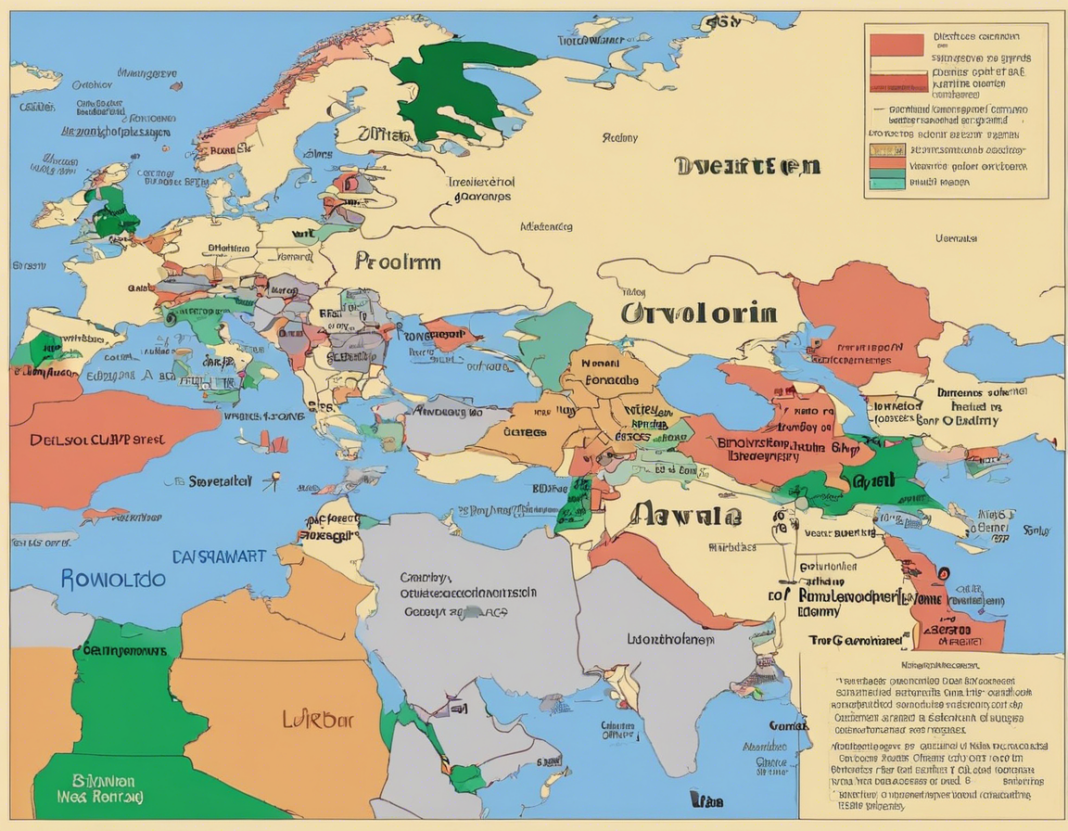Economic growth is a crucial measure of a country’s development and progress. It reflects the increase in the production of goods and services over time, leading to higher income levels, improved living standards, and a better quality of life for the population. Several factors contribute to driving economic growth in a nation, and understanding them is essential for policymakers, economists, and businesses. In this article, we will delve into the key drivers of economic growth, their significance, and how they shape the overall economic landscape of a country.
Investment in Physical Capital
Investment in physical capital is one of the primary drivers of economic growth. Physical capital includes infrastructure, machinery, equipment, and technology that enhance the productivity of workers and the overall efficiency of production processes. Governments and businesses that allocate resources towards building and upgrading physical capital can significantly boost economic output and create a more conducive environment for growth.
Human Capital Development
Human capital, which refers to the knowledge, skills, and expertise of a workforce, is another critical factor that drives economic growth. Investing in education, training, and healthcare not only enhances the capabilities of individuals but also increases overall productivity and innovation within an economy. Countries that prioritize human capital development often experience higher levels of economic growth and competitiveness on the global stage.
Technological Innovation
Technological innovation plays a pivotal role in shaping the growth trajectory of nations. Advancements in technology lead to increased efficiency, lower production costs, and the development of new products and services. Countries that foster a culture of innovation through research and development initiatives, intellectual property protection, and collaboration between the public and private sectors are more likely to experience sustained economic growth over time.
Infrastructure Development
Infrastructure such as transportation networks, communication systems, energy facilities, and water supply plays a crucial role in facilitating economic activities and enabling businesses to operate efficiently. Well-developed infrastructure not only reduces transaction costs and logistical bottlenecks but also attracts investments and spurs economic development in both urban and rural areas.
Macroeconomic Stability
Macroeconomic stability, characterized by low inflation, stable exchange rates, and prudent fiscal and monetary policies, is essential for long-term economic growth. A stable macroeconomic environment provides certainty and predictability for businesses and investors, encouraging savings, investments, and overall economic activity.
Trade and Globalization
Trade and globalization have become significant drivers of economic growth in today’s interconnected world. By promoting exports, attracting foreign direct investment, and participating in global value chains, countries can tap into new markets, access resources more efficiently, and benefit from knowledge spillovers and technological transfers.
Institutional Quality
Institutions such as the rule of law, property rights protection, regulatory transparency, and governance structures have a profound impact on economic growth. Countries with strong institutions that uphold the principles of fairness, accountability, and the protection of rights tend to attract investments, foster entrepreneurship, and ensure the efficient allocation of resources.
Entrepreneurship and Innovation
Entrepreneurship and innovation are essential drivers of economic growth as they lead to the creation of new industries, products, and business models. Governments that support entrepreneurial activities through policies that encourage risk-taking, provide access to funding, and facilitate knowledge diffusion are more likely to experience vibrant and dynamic economic growth.
Natural Resources and Environmental Sustainability
The sustainable management of natural resources and environmental conservation are critical considerations for long-term economic growth. Countries that leverage their natural endowments responsibly, adopt green technologies, and prioritize environmental sustainability can achieve a balance between economic development and environmental protection, ensuring the well-being of current and future generations.
Frequently Asked Questions (FAQs)
1. What is the difference between economic growth and economic development?
Economic growth refers to the increase in a country’s output of goods and services over time, typically measured by the GDP. Economic development, on the other hand, encompasses a broader range of factors, including improvements in living standards, education, healthcare, infrastructure, and environmental sustainability.
2. How can a country promote economic growth?
Countries can promote economic growth by investing in physical and human capital, fostering technological innovation, maintaining macroeconomic stability, enhancing infrastructure, promoting trade and globalization, strengthening institutions, supporting entrepreneurship and innovation, and prioritizing environmental sustainability.
3. Why is technological innovation essential for economic growth?
Technological innovation improves productivity, fosters competitiveness, drives new business opportunities, and enhances overall efficiency in an economy. It enables companies to develop new products and services, access global markets, and adapt to changing consumer preferences, all of which contribute to sustained economic growth.
4. What role do government policies play in driving economic growth?
Government policies can have a significant impact on economic growth by creating a conducive environment for businesses to thrive, promoting investments in critical areas such as infrastructure and education, ensuring macroeconomic stability, fostering innovation and entrepreneurship, and upholding the rule of law and regulatory transparency.
5. How does globalization contribute to economic growth?
Globalization facilitates the flow of goods, services, capital, and ideas across borders, creating opportunities for countries to specialize in their areas of comparative advantage, access larger markets, attract foreign investments, and benefit from knowledge spillovers and technology transfers. This integration into the global economy can boost economic growth and development.
In conclusion, economic growth is a multifaceted phenomenon driven by a combination of factors ranging from physical and human capital investments to technological innovation, infrastructure development, macroeconomic stability, trade, institutions, entrepreneurship, and environmental sustainability. By understanding and prioritizing these drivers, countries can create a favorable environment for sustained and inclusive economic growth, ultimately leading to improved prosperity and well-being for their populations.

